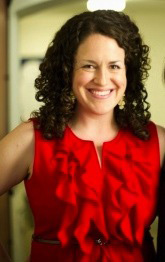CHARLOTTESVILLE, Va. (ABP)—What would Lottie do?
Last year, Southern Baptists gave $149.3 million to the Lottie Moon Christmas Offering for international missions, hailed as the third-highest amount in the offering’s 124-year history. With less fanfare, meanwhile, the iconic missionary’s childhood church quietly voted to call its first-ever female pastor.
 Katie McKownKatie McKown, a Kentucky native and graduate of Baylor University’s George W. Truett Theological Seminary, became pastor of Scottsville Baptist Church in metropolitan Charlottesville, Va., last November. Her installation service was in April.
Katie McKownKatie McKown, a Kentucky native and graduate of Baylor University’s George W. Truett Theological Seminary, became pastor of Scottsville Baptist Church in metropolitan Charlottesville, Va., last November. Her installation service was in April.
McKown grew up in a Southern Baptist church learning about Lottie Moon, whose name is attached to an offering that has raised $3 billion for missions since its inception in 1888.
McKown now identifies with the Cooperative Baptist Fellowship, a 1,900-church group that affirms women in pastoral ministry. The Southern Baptist Convention’s official faith statement, meanwhile, says: “While both men and women are gifted for service in the church, the office of pastor is limited to men as qualified by Scripture.”
McKown declined to be interviewed about women’s roles in the current SBC.
Moon biographer Catherine Allen said she thinks Lottie Moon would be concerned about restrictions placed on women today that might hinder people from hearing the gospel. “Personally I think it’s great that there’s a woman pastor there,” said Allen, a retired Woman’s Missionary Union executive who wrote The New Lottie Moon Story in 1980.
Lottie’s trajectory toward missions
Scottsville Baptist Church was organized in 1840, the year Lottie Moon was born. Her parents, Anna and Edward Moon, were charter members. She rejected Christianity until she was in college. In December 1858, she dedicated her life to Christ and was baptized at First Baptist Church of Charlottesville, Va.
Sign up for our weekly edition and get all our headlines in your inbox on Thursdays
She attended Albemarle Female Institute and in 1861 was one of the first women in the South to receive a master’s degree. Following the example of her sister, Edmonia, she was appointed to China by the Foreign Mission Board in 1873, a time when unmarried women serving as foreign missionaries was controversial.
She remained there 39 years, until her death aboard a ship in the Japanese harbor of Köbe on Christmas Eve 1912. She frequently wrote letters to the United States detailing the physical and spiritual needs of the Chinese people and challenged Baptist women to organize for support of missions.
An offering in her name
In 1888, the newly organized Woman’s Missionary Union raised $3,315 the first year and made it an annual offering. In 1918, it was renamed the Lottie Moon Christmas Offering.
Missionary nurse Cynthia Miller, who accompanied Moon alone in her final days, said in an article published in the Religious Herald that unbeknown to fellow missionaries, Moon gave all her money to the Chinese people and literally starved to death for their sake.
Una Roberts Lawrence’s 1927 biography gave the Lottie Moon story wide circulation, making her name synonymous with Southern Baptists’ sacrificial missionary spirit.
Many people who no longer support the direction of the Southern Baptist Convention happily give to the Lottie Moon Offering “because it doesn’t feel like Christmas” without it, Allen said, noting it took a few years for her to stop giving personally to the offering. But now she finds other ways to give, because “I can’t in good faith give to an offering that doesn’t support women.”
Other ‘missions women’
Some former Southern Baptist churches have found another historic woman missionary for whom to name their offering, Allen noted.
First Baptist Church in Greenville, S.C., for example, promotes the Lula Whilden World Missions Offering, named after a single woman missionary who sailed to China in 1872 along with Edmonia Moon. The offering funds mission work done through the Cooperative Baptist Fellowship, CBF of South Carolina and the Alliance of Baptists.
This year marks the 125th anniversary of Woman’s Missionary Union. A two-day celebration at the recent SBC annual meeting in Houston included presentation of a new history, We’ve a Story to Tell, by national WMU officer Rosalie Hunt.
–With reporting by freelance writer Anna Keller.















We seek to connect God’s story and God’s people around the world. To learn more about God’s story, click here.
Send comments and feedback to Eric Black, our editor. For comments to be published, please specify “letter to the editor.” Maximum length for publication is 300 words.